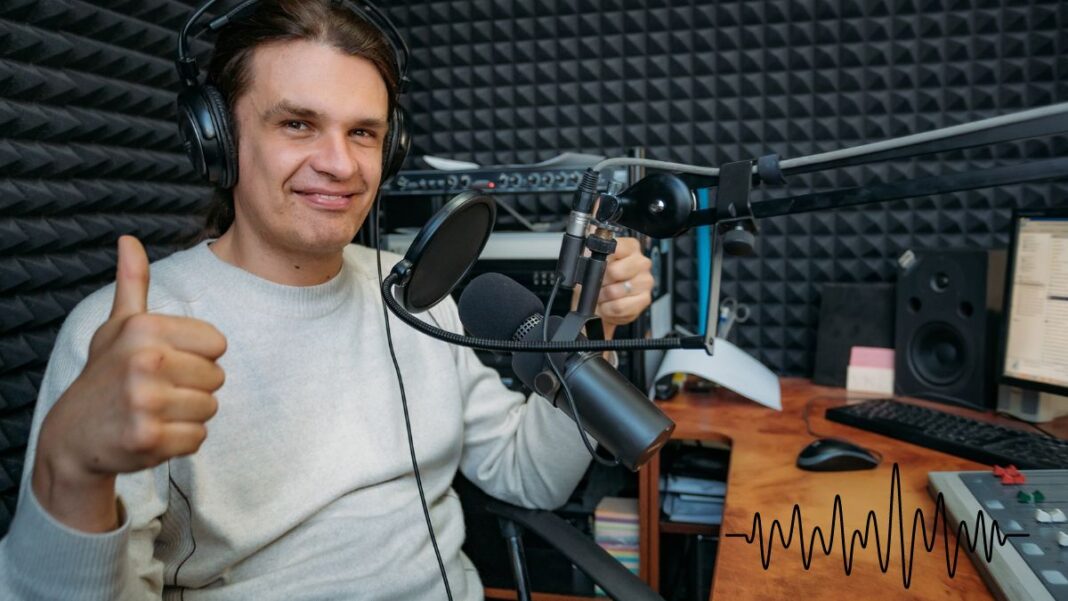This week, I’ll get a little personal and look back. If you’re reading this week’s column on the day of publication, today (August 19) is my 70th birthday. Prior to Joe Biden dropping out of the election, I would have said I’m getting close to the age when I can run for president, but instead, I’ll accept that the moniker of “old fart” is appropriate.
I was 14 when I decided to get in the broadcasting business, talking myself into it while meeting with a guidance counselor who was working on a doctorate at the University of Rochester. They needed real high school kids to talk with as part of their curriculum and a friend suggested I try it. One night, he asked me what I wanted to do for a living. Fifty-six years later, I’m still doing it, just not on a full-time basis anymore. Listening to radio was a joy when I was a kid, whether it was the local Top 40 stations, listening to big AMs on the skip at night, or discovering the FM band.
While I didn’t crack a mic until I got to Michigan State as a freshman in 1972, I studied the industry all I could. My mom worked at Kodak and because TV stations still used film in those days, the company advertised in Broadcasting magazine. She would get her hands on a copy of Broadcasting each week and bring it home. The highlight was the Broadcasting Yearbook, which I would read cover-to-cover. Yes, that’s a textbook definition of “nerd”.
That memory leads to the recent sad news that after 93 years, Broadcasting, now Broadcasting and Cable, will be shut down very soon. All that will be left is an annual awards ceremony. I was recently going through some of my “detritus” in our attic here in Bowling Green and found my copy of Broadcasting’s 50th anniversary issue, dated October 12, 1981. The headline was “On the Road to 2001”. The issue contained a lot of thoughts about where the business was headed, but as Yogi Berra said, “it’s hard to make predictions, especially about the future.”
In 1981, the industry was just getting used to the idea of cable, fiber optics, and satellites. There were a few predictions about what became SiriusXM (which started just about 20 years later) and everyone figured there would be more choice for consumers. Not everything came true. The late Bob Coen, who forecast advertising revenue during his 67 years(!) at McCann-Erickson, figured radio revenue would hit $28 billion by 2001. It’s 2024 and we’re still well short of that number.
I’ve never regretted getting into broadcasting. Radio was always a first love even though I spent some time on the TV side in the ‘90s. Realizing that while I probably could have done on-air and programming roles, the ratings world hooked me when I was operations manager at WSPA-FM in Spartanburg, South Carolina many years ago. Jim Duncan’s American Radio compilation of all the Arbitron Ratings was required reading for me (always the numbers nerd) and eventually, I went back to school at Michigan State and completed a doctorate in Mass Media, thinking I would learn about survey methodology and how ratings work. I started at the National Association of Broadcasters in 1987 and except for one short detour to teach at Michigan State for a year, I’ve managed to have an entire career in the business.
While I don’t think I ever had any true “mentors “in the business, I have had the pleasure of working for and learning from a lot of good bosses over the years. The late Larry Alverson at WSPA-FM, Rick Ducey at NAB, Bill Engel at Birch/Scarborough, Howard Zeiden at WPXI-TV, Mark Mays at Clear Channel, David Lapovsky at Arbitron, and Mike McVay at Cumulus were all crazy enough to hire me and generally let me do whatever it was that needed to be done and sometimes more when I had an idea or two. Ask Fred and Paul Jacobs about how “The Bedroom Project” and “Goin’ Mobile” came to pass.
You don’t need me to spout bromides about “change” in the media. The radio subset of media, now often referred to as “audio”, has morphed from what we loved in the ‘70s, ‘80s, and ‘90s. Consumers have lots of choices from the launch of Sirius and XM, to streaming and podcasts. Broadcast radio is still vibrant and can be profitable, albeit with fewer staff and a lot more technology.
This is not a valedictory for either the industry or me. And while the past had some “good old days” that are fun to chat about over a beer, we have to focus on the future. When I taught during my graduate school time at MSU, I used to tell students that the media business is fun. If you want to play it safe, change your major to accounting and assuming you’re at least marginally competent, you’ll always have a job, but it probably won’t be fun or fulfilling. My brother majored in accounting and was eventually a CFO but it never sounded like he had fun at work even though he made some good money.
With all that said, I’ll celebrate the day with Felecia, my wonderful girlfriend here in BG. Tomorrow, I’ll keep following the industry and audience measurement and commenting about how you and the industry can both do better.
Thanks for letting me reminisce and let’s meet again next week.








